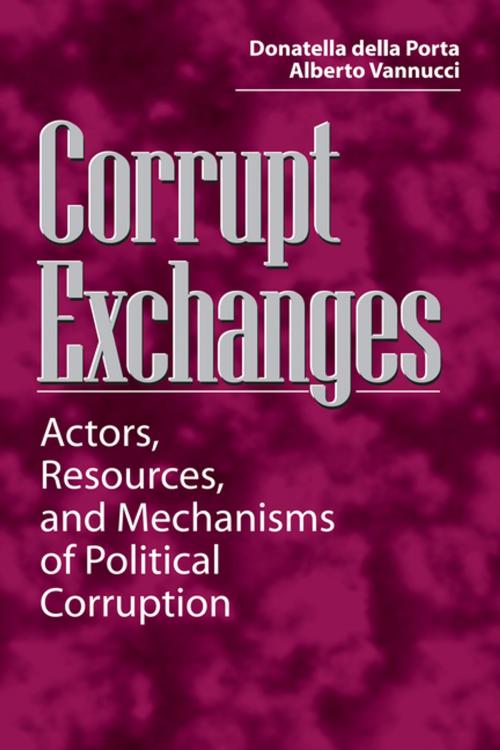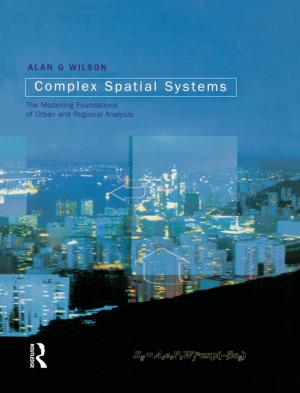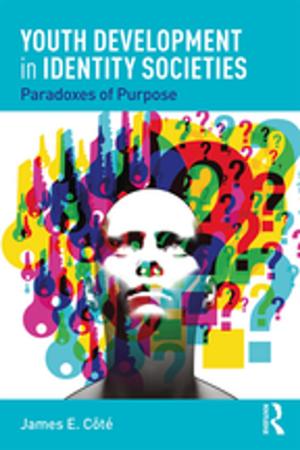Corrupt Exchanges
Actors, Resources, and Mechanisms of Political Corruption
Nonfiction, Social & Cultural Studies, Political Science, Government, Democracy| Author: | Donatella della Porta | ISBN: | 9781351525664 |
| Publisher: | Taylor and Francis | Publication: | July 28, 2017 |
| Imprint: | Routledge | Language: | English |
| Author: | Donatella della Porta |
| ISBN: | 9781351525664 |
| Publisher: | Taylor and Francis |
| Publication: | July 28, 2017 |
| Imprint: | Routledge |
| Language: | English |
Political corruption has traditionally been presented as a phenomenon characteristic of developing countries, authoritarian regimes, or societies in which the value system favored tacit patrimony and clientelism. Recently, however, the thesis of an inverse correlation between corruption and economic and political development (and therefore democratic maturity) has been frequently and convincingly challenged. Countries with a long democratic tradition, such as the United States, Belgium, Britain, and Italy, have all experienced a combination of headline-grabbing scandals and smaller-scale cases of misappropriation.In Corrupt Exchanges, primary research on Italian cases (judicial proceedings, in-depth interviews, parliamentary documents, and press databases), combined with a cross-national comparison based on a secondary analysis of corruption in democratic systems, is used to develop a model to analyze corruption as a network of illegal exchanges. The authors explore in great detail the structure of that network, by examining both the characteristics of the actors who directly engage in the corruption and the resources they exchange. These processes of degeneration have caused a crisis in the dominant paradigm in both academic and political considerations of corruption.The book is organized around the analysis of the resources that are exchanged and of the different actors who take part. Politicians in business, illegal brokers, Mafia members, protected entrepreneurs, and party-appointed bureaucrats exchange resources on the illegal market, altering the institutional system of interactions between the state and the market. In this complex web of exchanges, bonds of trust are established that allow the corrupt exchange to thrive. The book will serve both as a theoretical approach to a political problem of large bearing on democratic institutions and a descriptive warning of a system in peril.
Political corruption has traditionally been presented as a phenomenon characteristic of developing countries, authoritarian regimes, or societies in which the value system favored tacit patrimony and clientelism. Recently, however, the thesis of an inverse correlation between corruption and economic and political development (and therefore democratic maturity) has been frequently and convincingly challenged. Countries with a long democratic tradition, such as the United States, Belgium, Britain, and Italy, have all experienced a combination of headline-grabbing scandals and smaller-scale cases of misappropriation.In Corrupt Exchanges, primary research on Italian cases (judicial proceedings, in-depth interviews, parliamentary documents, and press databases), combined with a cross-national comparison based on a secondary analysis of corruption in democratic systems, is used to develop a model to analyze corruption as a network of illegal exchanges. The authors explore in great detail the structure of that network, by examining both the characteristics of the actors who directly engage in the corruption and the resources they exchange. These processes of degeneration have caused a crisis in the dominant paradigm in both academic and political considerations of corruption.The book is organized around the analysis of the resources that are exchanged and of the different actors who take part. Politicians in business, illegal brokers, Mafia members, protected entrepreneurs, and party-appointed bureaucrats exchange resources on the illegal market, altering the institutional system of interactions between the state and the market. In this complex web of exchanges, bonds of trust are established that allow the corrupt exchange to thrive. The book will serve both as a theoretical approach to a political problem of large bearing on democratic institutions and a descriptive warning of a system in peril.















